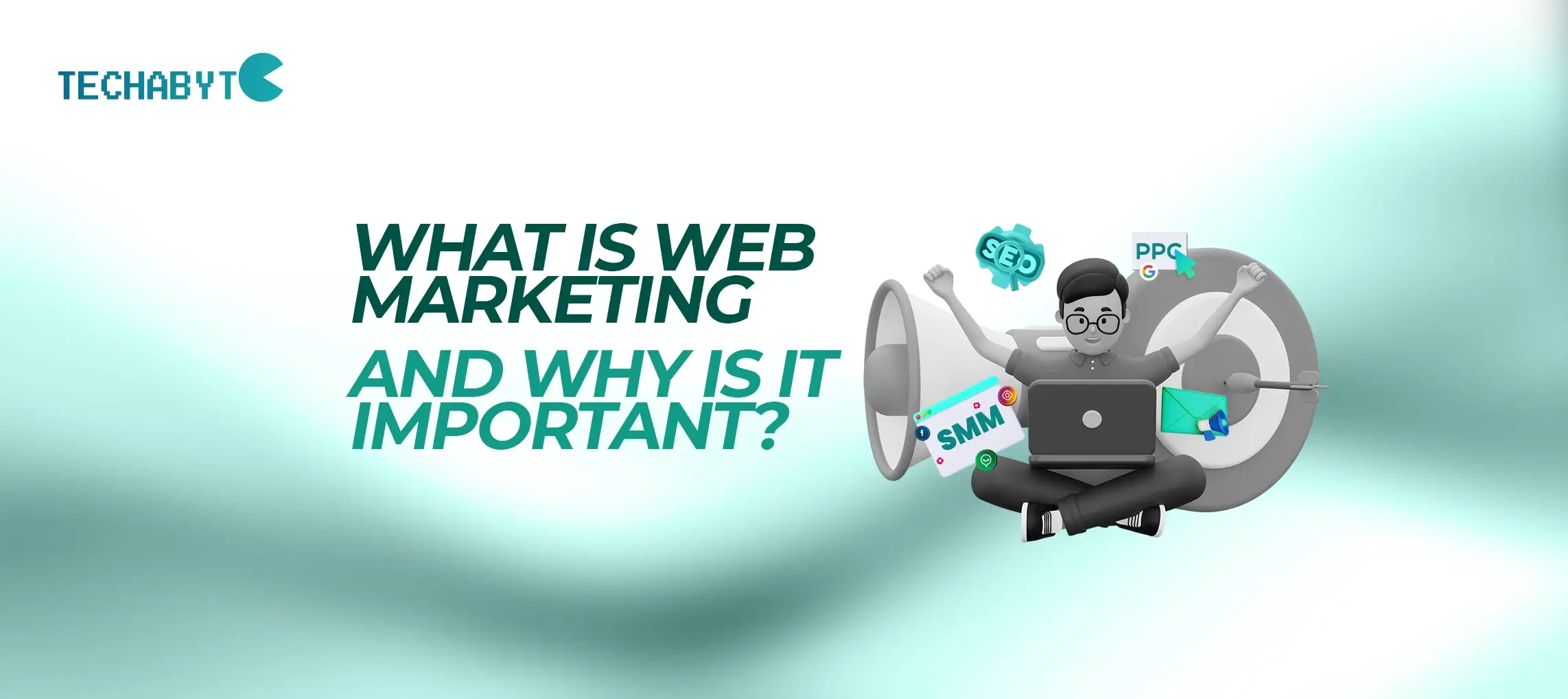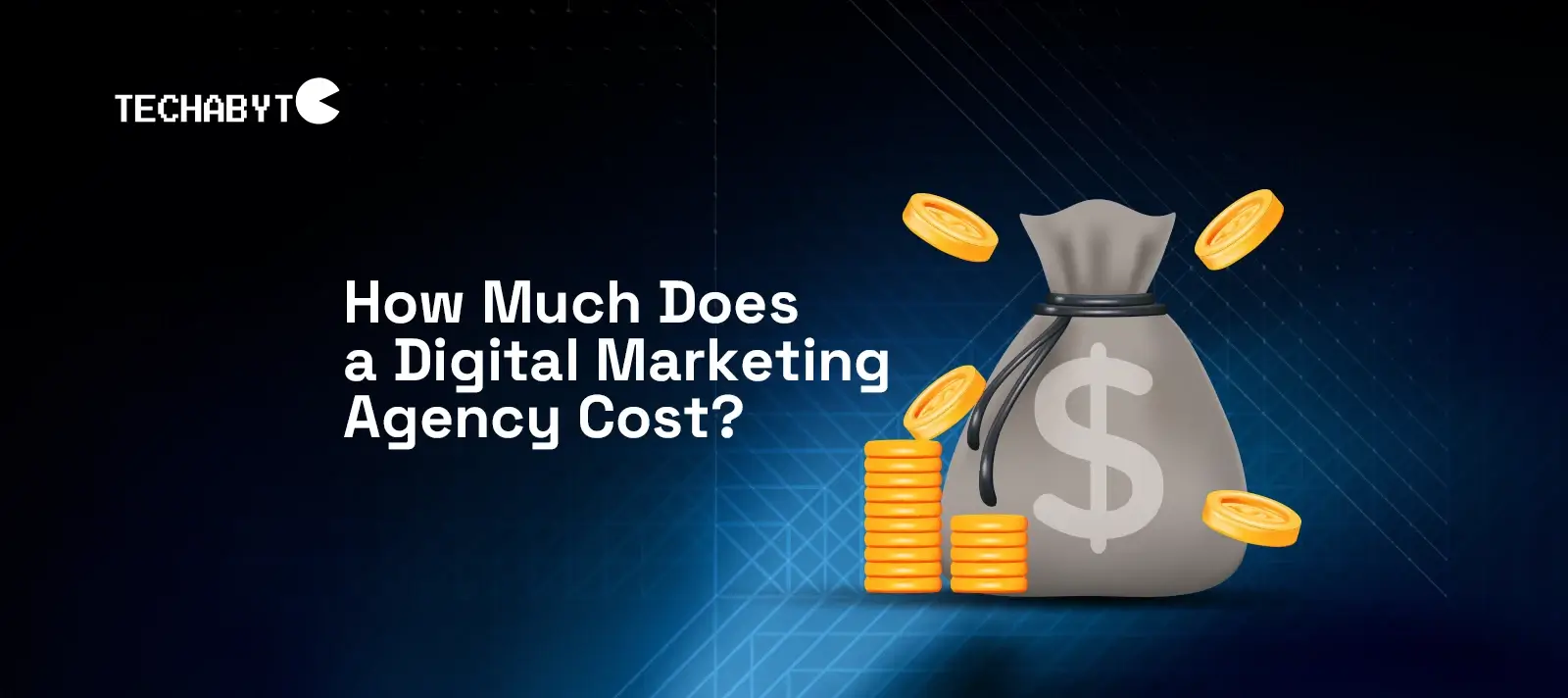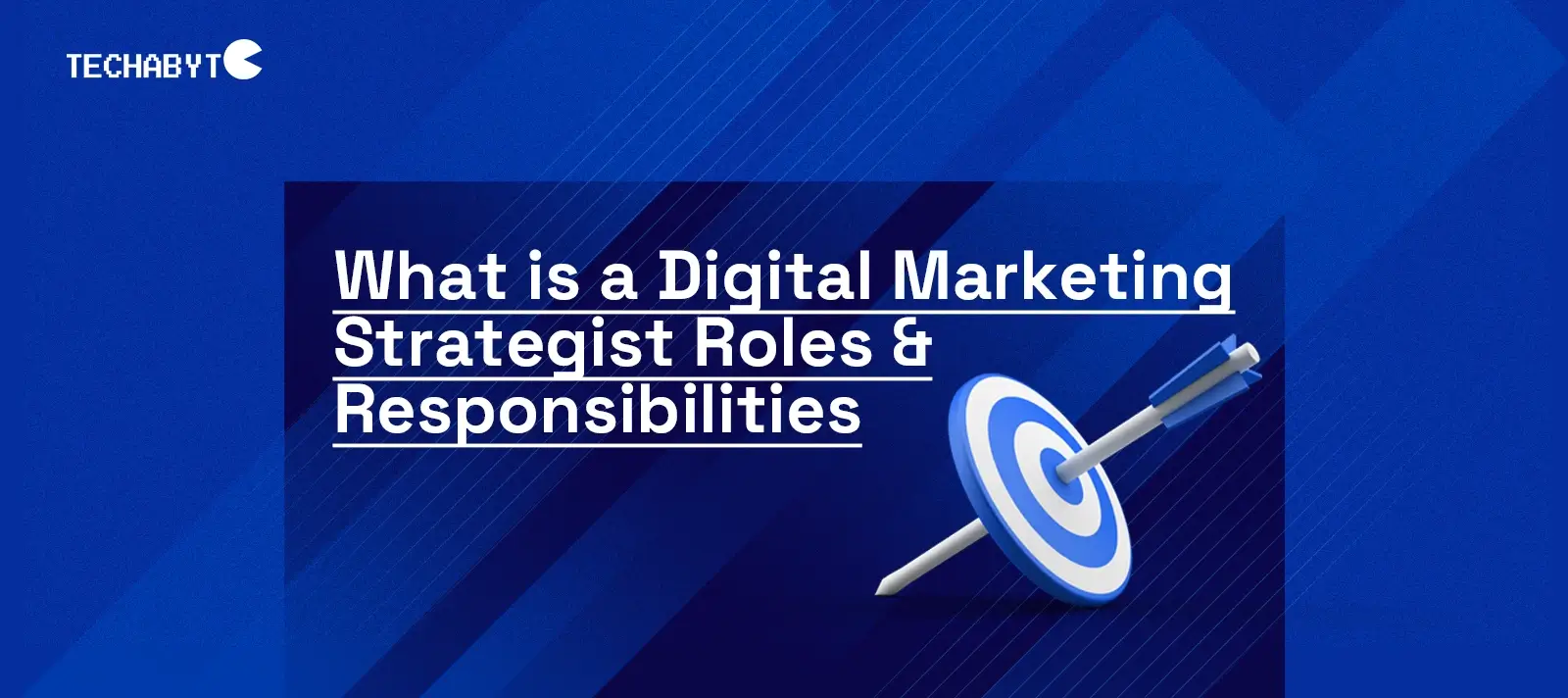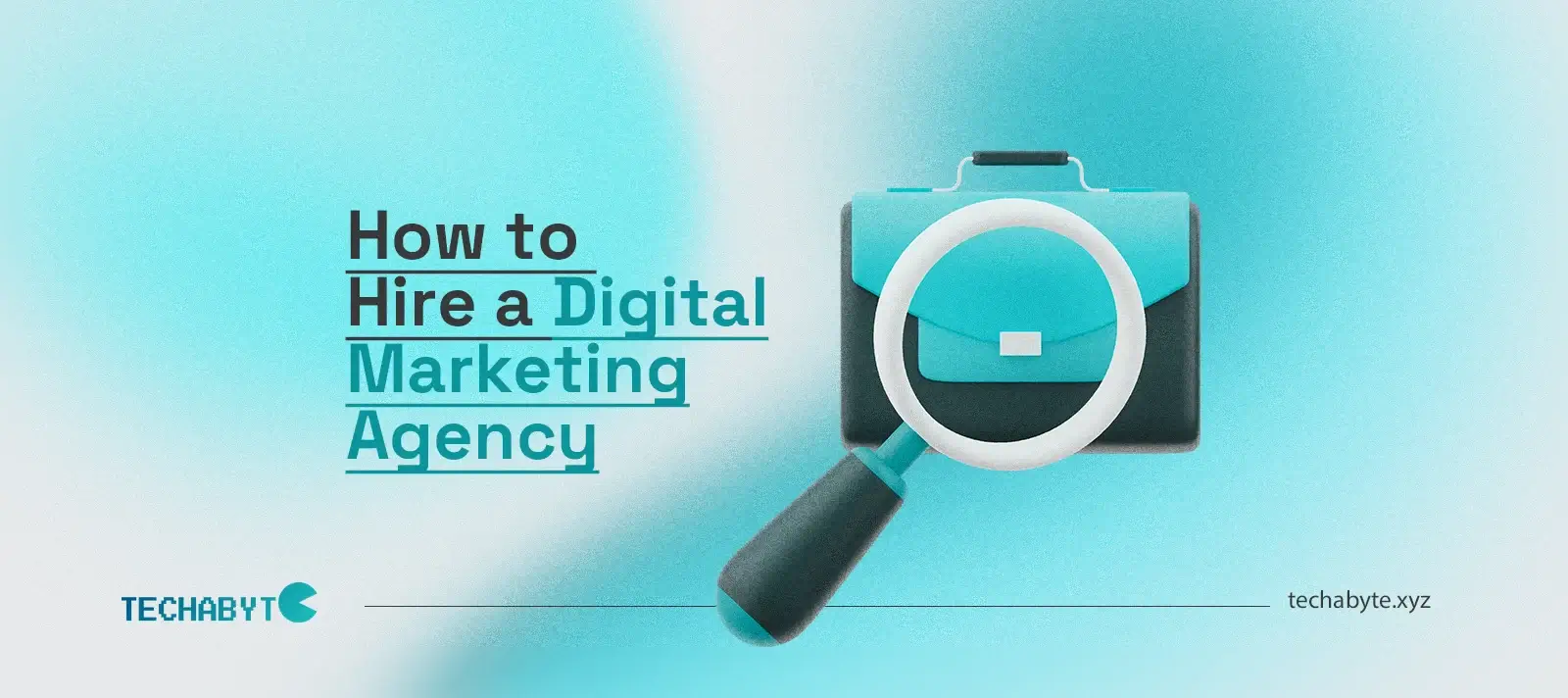In today’s fast-evolving digital age, Web Marketing is no longer optional—it’s necessary. It’s the connection between ‘offline’ businesses and billions of prospective ‘online’ customers, and it’s only gotten so much better in the form of search engines and social media, to name a few more. AI-driven personalization, immersive digital experiences: this is how, as per Secretariat and UNCTAD reports, marketing of the 21st century looks like communicating, selling, and building trust.
On this blog, we’ll look at what web marketing is, why it matters, and the types of marketing that exist on the web before moving into current trends like artificial intelligence, voice search, and social commerce to help you figure out how to implement the right strategies for long-term digital success.
5 Key Takeaways
- Web Marketing integrates multiple digital channels to attract, convert, and retain customers.
- It provides measurable, cost-effective results compared to traditional marketing.
- Emerging technologies like AI and voice search are reshaping how marketers reach audiences.
- Businesses using web marketing gain greater visibility, reach, and personalization capabilities.
- The future of web marketing will focus on ethical, data-driven, and inclusive approaches.
Introduction
Marketing is about connection with your audience in the correct place and at the correct time. In today’s scenario, that place happens to be online. Web Marketing, also termed as online or digital marketing uses the internet for promotion of products and services building brand awareness and engaging customers in real time.
Web marketing is dynamic, trackable, and accountable. The channels it uses are websites, search engines, email, and social media. Instant pixel tracking of both impressions and conversions drives instant intelligent marketing strategies that can be made more efficient.
Where an individual in this day and age makes a decision on whether to buy something based on research found online as well as reviews and the general social proof about a product or service having good web marketing is imperative for not just thriving but actually merely surviving!
What Is Web Marketing?
Web Marketing is basically the use of the internet for marketing and advertising a business’s products or services. In detail, it involves all digital means of communications that may include websites, emails, social networks, and paid advertising platforms uniting people from all over the world.
The purpose of web marketing is not just promotion. It is relationship building. Today’s consumers want personalized experiences, valuable content, and instant interaction. Creative, technological, and analytical minds unite to create strategies for delivering those experiences in a seamless way.
A brand may get visitors through blog posts, nurture them with informative email newsletters, and personalize ads or offers to finally convert them. This is under the general web marketing strategies that help businesses move users from one stage to another in their journey.
What Are the Different Types of Web Marketing?
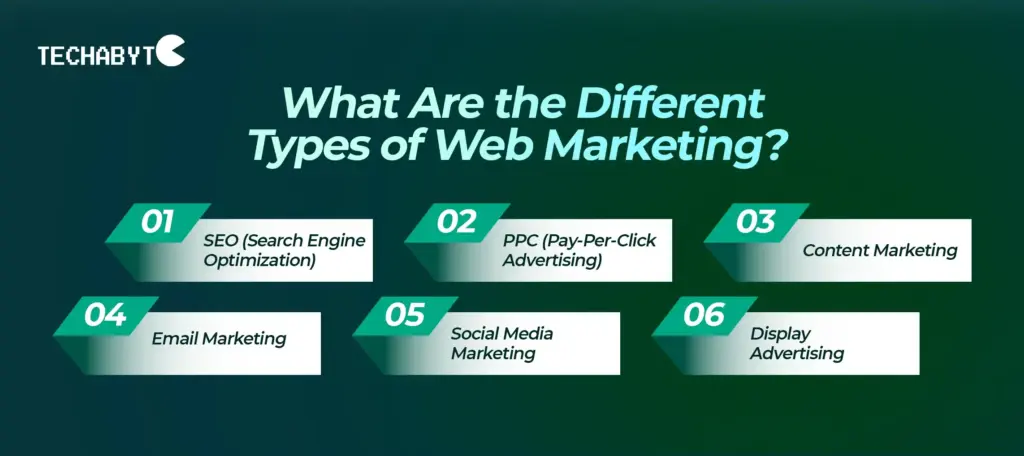
This is the essence of Web Marketing. It’s not a one-off thing but a set of interrelated tactics that when applied ‘’in total” create a digital ecosystem. Each kind of web marketing has its job to do, be it bringing in traffic or fostering long-term allegiance to the brand.
1. SEO (Search Engine Optimization)
SEO is the core of online marketing. It has to do with ensuring that a site will rank high on Google and other search engines. A few ways in which SEO does this are through keyword research, content of great quality, link-building, and technical optimization. Having your website come up at the top of the list when someone searches for what you offer is invaluable.
Say, for example, if someone types in the words ‘best running shoes,’ then that site selling athletic footwear will get free (organic) traffic. Unlike paid ads, in SEO visibility is long-term; credibility plus authority.
2. PPC (Pay-Per-Click Advertising)
PPC (Pay-Per-Click) is indeed a rather self-explanatory form of online advertising wherein a business pays solely for the actual clicks received on their ad. Usually, these ads appear either on popular search engines (e.g., Google via Google Ads) or social platforms like Facebook and its associate Instagram.
This is through the facilitation of instant traffic, campaign testing, and targeted campaigning toward specific demographics, respective audiences, and interested people. If this kind of PPC campaign is properly handled, it may bring great returns because here the budget is set quite accurately, as are the keywords and demographics of the audience.
3. Content Marketing
Content sits at the heart of Web Marketing. The plan works by generating useful, related, and steady content—be it blogs, videos, infographics, or eBooks—to draw and inform your crowd. Content marketing builds trust and authority while backing other strategies such as SEO and social media. For instance, a helpful blog on “How to Choose the Right Laptop” may bring in traffic show skill and prompt readers to buy from your brand.
4. Email Marketing
Email marketing is one of the oldest yet most potent online marketing methods. It allows for direct talking with listeners by sending personalized messages, promos, or newsletters. Firms can use email drives to warm leads, share new products, or keep current clients. With the right chop of lists, rules in place, and study tools used well, firms can see great returns on investment getting sometimes as much as $40 for every $1 spent.
5. Social Media Marketing
A place where brand stories come to life: “Indeed, social media is where brand stories come to life,” content shared through Facebook, Instagram, LinkedIn, or TikTok helping businesses connect, engage and convert one another’s friends into customers by organic posts and paid ads.
Social media marketing boosts brand exposure, humanizes your brand, and drives community engagement through sharing food and life experiences with potential influencers and real customers contributing to stronger trust-building exercises.
6. Display Advertising
Display advertising- big banners, pictures, or movies all over websites and apps to grab eyeballs. These can be aimed at users by what they like, how they act, or where they’ve been online. Great for brand buzz and chasing lost clicks- reminding those who looked but didn’t buy to come back and finish their shopping. All together, these make up the base of Web Marketing. Put together with a plan, they give a joined-up digital front that boosts visibility, pulls in interest, and drives conversions.
Emerging Types of Web Marketing You Should Know
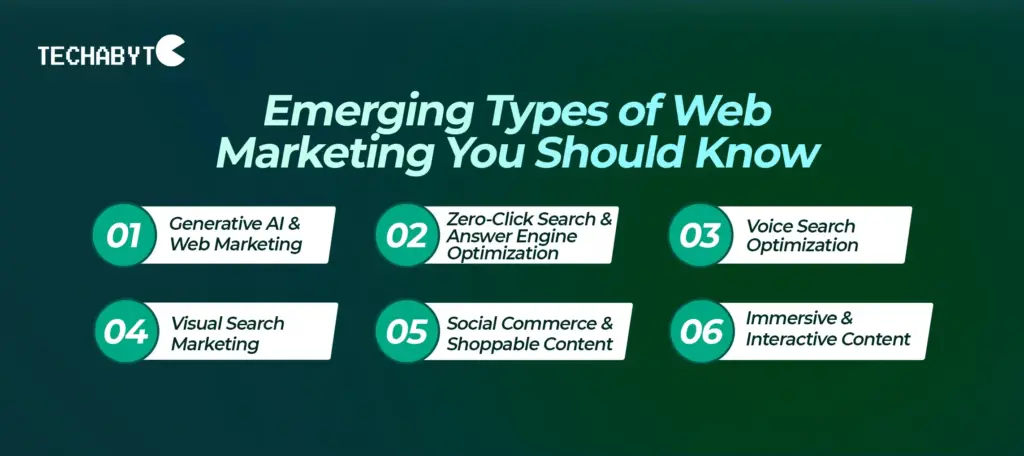
The world of Web Marketing is constantly evolving. New technologies are reshaping how brands connect with audiences, making innovation a necessity rather than a choice.
1. Generative AI & Web Marketing
Artificial Intelligence (AI) tools have begun reshaping, and will eventually transform, every stage of digital marketing. Generative AI frees marketers to create blogs or ad copy and leaves the machine to analyze campaign data. Generative Engine Optimization (GEO) is about tuning content for AI results—making sure a brand stays visible even in highly conversational and zero-click environments.
2. Zero-Click Search & Answer Engine Optimization
Most of the users get their answers right from Google or AI assistants, not by visiting any particular website. Brands have to be responsive by optimizing for featured snippets, knowledge panels, and conversational queries.
3. Voice Search Optimization
With smart speakers and mobile assistants, users increasingly rely on voice commands. Marketers must use natural language and question-based content to match how people speak, not just how they type.
4. Visual Search Marketing
Visual search lets the user input a picture instead of keywords. Firms should ensure their pictures are clear, use detailed alt labels, and apply structured info to show up in visual search outcomes on Pinterest, Google Lens, and Instagram.
5. Social Commerce & Shoppable Content
Social channels are turning into shopping destinations. Brands tag products right inside posts or videos, turning engagement directly into purchases. Instagram Shops, TikTok Shopping, and Facebook Marketplace lead the example.
6. Immersive & Interactive Content
AR and VR experiences–virtual try-ons or 3D product demo included–create engagement since users feel the product before they actually purchase it. Interactive quizzes, polls make an emotional connection and higher retention.
Why Is Web Marketing Important?
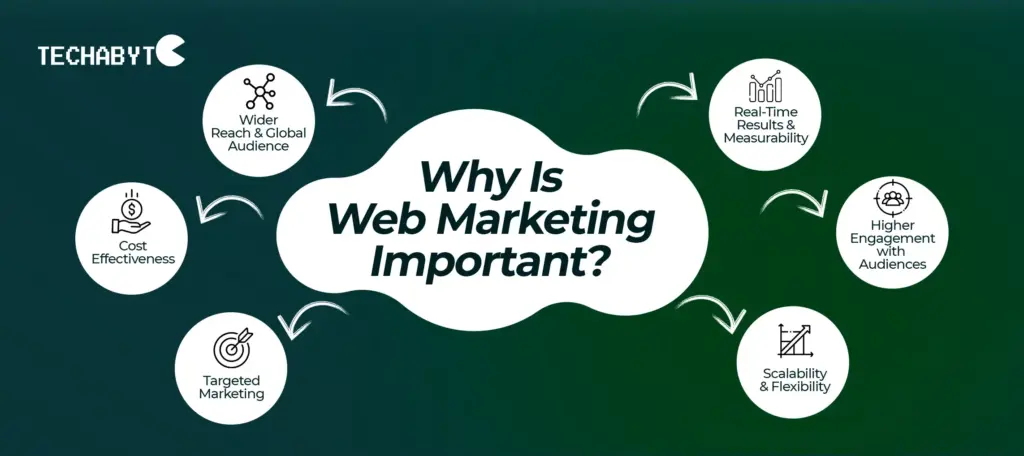
Most importantly, Web Marketing ensures long-term growth. While ads bring quick visibility, SEO and the value of Web Marketing brings measurable, global, and personalized results that impact on the long run for business, which is something not achievable through traditional marketing.
It provides for extended coverage allowing small local brands to be able to pull international audiences. It is cheap; therefore, flexible budgets for startups and large enterprises too. Accurate targeting—audiences based on age, interest, behavior as well as geography.
1. Wider Reach & Global Audience
Web Marketing has a great advantage in allowing access to such a large global audience. For example, a small business located in Dhaka can present its product to consumers found in London or New York just by using social media, search engines, and e-commerce systems. This level of visibility around the world cannot be matched by traditional marketing—print ads or even billboards come nowhere close to being this efficient. Web marketing breaks the geographical shackles that bound growth; on a global scale, every business is made to run.
2. Cost-Effectiveness
Compared to what they would have paid for in traditional advertising, they receive a much lower cost per lead and acquisition. Businesses can run ads or create social content, even an email campaign at just a fraction of the costs involved in TV or print advertising. The flexibility of online budgets makes small startups compete with large corporations. Start small, see results, scale up as performance improves—making it the most financially efficient marketing approach available today.
3. Targeted Marketing
Traditional marketing follows the model of “one-message-for-all” most of the time. Web Marketing allows close targeting by demographics, interests, location, and even online behavior. Data and audience segmentation enable marketers to send messages straight to those people who have an interest in their offer. Retargeting ads and personalized campaigns maximize ROI for businesses while lowering wasted impressions on a great scale that every marketing dollar works.
4. Real-Time Results & Measurability
A further great advantage of Web Marketing is measurability. Every click, view, and conversion can easily be tracked with such common analytics tools as Google Analytics or Meta Ads Manager. Marketers can see on the spot which campaigns are performing best, what audiences engage most, and where to optimize. While one may have to wait weeks for traditional marketing to provide feedback on whether it is working or not, web marketing gives immediate insights, thus enabling fast decision-making that continuously improves the process.
5. Higher Engagement with Audiences
Engagement is at the heart of digital marketing success. All of that personal contact – from social media comments to email responses to live chat, all achieved through Web Marketing – bears closer relations between businesses and customers. Responding to any feedback or answering any questions, or having an online Q&A really ‘speaks’ to mode engagement with a client online always makes the client feel heard and cherished and turns them into loyal advocates for your brand.
6. Scalability & Flexibility
A very unique strength of Web Marketing is how easily you can scale or adjust the campaign. If an ad is performing well, then just let the marketer increase the budget. If a strategy is underperforming, pause it for a while, change it, or even redirect it within minutes. Such flexibility ensures getting the maximum level of efficiency and also helps firms to keep pace with changes in market trends, user behavior, or seasonal demands.
7. Brand Visibility & Recognition
Brand visibility has never been this easier before. With Web Marketing, by keeping a steady stream going with SEO, social media, and content marketing, your brand keeps showing up here, there, and everywhere. Over time ,being noticed builds up trust inside your intended audience. The more people see your brand online—be it blogs, videos, or on some social ads—the better the chance they’ll remember it and want to interact with it.
8. Competitive Advantage
Those businesses that had warmly embraced Web Marketing were always a step ahead of the competitors who just relied on conventional methods. Trends, tools, and technologies can be adopted faster through online strategies. For example, AI-driven analytics or interactive ads place a brand at an advantageous position over others who have not yet joined the digital transformation. This competitive advantage defines whether a business is thriving or falling behind in fast-moving markets.
9. Personalized Marketing Experience
Personalization represents one of the pillars in contemporary Web Marketing. By means of data and AI instruments, enterprises convey specific messages, recommendations on products, as well as deals to single users. Personalized encounters make clients sense comprehension and value which leads to an increase in happiness plus conversion rates. Every online interaction ranging from customized emails to retargeted advertisements can be adjusted perfectly according to user likes and actions.
10. Data-Driven Decisions
Traditional marketing decisions are based on assumptions or intuition. In Web Marketing, everything is based on data. Marketers perform analysis, and see heatmaps, and insights into user behavior to determine which elements are performing and which are not. Predictive analytics and AI tools enable brands to act smartly even before the trends happen. Having a data-centric approach reduces risk, thereby ensuring maximum returns.
11. Long-Term Results
Paid ads stop running. Many Web Marketing strategies—SEO, content marketing—build over time. A blog post optimized well can bring in leads for months, sometimes even years. An email list or social media community that is engaged continues to give long past any initial campaign. Due to such long-term benefits, web marketing is the main investment toward sustainable growth.
12. Enhanced Customer Relationships & Loyalty
Trust, that’s where it starts. That’s how strong customer relationships are built. That’s what leads to consistency and long-term loyalty between a business and its customers. With Web Marketing efforts, businesses can send a newsletter here or add their company to a few special offers there as well as remix in some loyalty programs plus personalized offers for good measure. Meaningful content shared on the regular keeps everyone connected- sharing is caring after all.
13. Adaptability to Changing Trends
The digital world changes fast, and Web Marketing gives the flexibility to adjust. From AI and voice search to AR and VR as part of the broader suite of immersive technologies, among others that can be used by marketers, this adaptability ensures your brand stays relevant and maintains a competitive edge amidst all the changes around you. Companies that grow with the tech don’t just live—they lead.
Why Is Web Marketing on the Rise?
Several factors explain why web marketing continues its dominance. The explosive growth of the internet and smartphone usage has changed the way people look for and purchase products. Now, before making any decisions, consumers do online research. They value transparency plus personalization.
Tech changes—such as AI auto, voice look, and AR/VR—help marketers get users in smarter, fun ways. Social sites are now the new shop front while online shopping lets buying happen right from digital spaces. Also, Web Ads give better aiming, tracking, and price checks than any old way. As rivals grow, brands with no strong web show risk falling out of favor.
Why Is Web Marketing Relevant to You?
Whether you’re running a startup or small business, or whether you are managing an eCommerce store or an established multinational corporation, it is Web Marketing that is going to help you compete at that global level. Small companies can have the same reach as larger corporations if they work in their favor via effective, either SEO or social media campaigns. Service providers create authority with informative content while the retailers make direct sales through the online stores or advertisements; simply said, web marketing gives equal opportunities to everyone.
How to Get Started with Web Marketing
Web Marketing may very well be complex, one may argue but as it goes when you have a definite plan in mind that’s when things work out. Setting Clear Goals, Selecting The Right Channels, Budgeting Wisely, Using The Right Tools-This Is How Any Business Builds A Strong Digital Presence Slowly But Surely.
1. Setting Objectives
All Web Marketing strategies begin with defined goals. Are you after increased traffic, lead generation, brand awareness? Define some measurable goals, and it’s easier to keep on track and know how well you are doing. For example, in the case of SEO, work more on optimizing shipping pages and running blog content that supports those campaigns. If your objective is brand awareness or brand promotion, allocating appropriate resources shall also be another crucial element of an online marketing plan.
2. Choosing Channels
The strength of Web Marketing lies in its variety. Select the channels that align best with your goals and target audience.
- SEO for long-term organic visibility.
- Social Media Marketing for brand engagement.
- Email Marketing for nurturing leads.
- PPC Advertising for instant traffic and conversions.
- Content Marketing for credibility and education.
Start with a few effective channels, then expand as you see results.
3. Budget Planning
Probably, the biggest advantage of Web Marketing is flexibility. Begin with little and grow gradually. Plan the budget according to channel performance and invest more where the return is more. Also, do reserve some portions for testing new ad formats, creatives, or keywords. Smart small investments, after all, can modestly return when optimized.
4. Building Campaigns
Once your goals, channels, and budget are set, start creating campaigns that connect with your audience. Focus on strong visuals, clear messaging, and an engaging call-to-action. For paid campaigns, use A/B testing to see what performs best. Ensure your website or landing page is fast, mobile-friendly, and conversion-optimized.
5. Tools to Use
The right tools simplify and strengthen Web Marketing efforts.
- Google Analytics for performance tracking.
- SEMrush or Ahrefs for SEO insights.
- Mailchimp or HubSpot for email automation.
- Canva for quick content design.
- Meta Business Suite for social ad management.
These tools help you plan smarter, track progress, and improve continuously.
Advanced Web Marketing Strategies
Future-oriented businesses are moving toward smarter and more ethical practices in Web Marketing:
- First-Party Data & Privacy-First Marketing: Collect user data with consent while maintaining transparency.
- Hyper-Personalization: Use AI to deliver customized content and recommendations in real time.
- Ethical & Purpose-Driven Marketing: Focus on authenticity and sustainability to build trust.
- Community-Driven Marketing: Encourage users and employees to share stories and experiences around your brand.
- Web Accessibility & Inclusive Marketing: Ensure your digital assets are accessible to everyone.
- Future Trends: Expect AI-powered personalization, immersive media, and automation to shape the marketing landscape by 2030.
7 Web Marketing Tips for Your Business
- Deeply know your audience: what they want, where they hang out, and how they can engage.
- Mobile optimization for a seamless user experience.
- Utilize a Mix of Marketing Channels.
- Use analytics to track results and tweak strategies in real time.
- Keep investing on a consistent basis in SEO and content quality.
- Start using AI, voice, and visual search fields of play.
- Foster a sense of community and trust around your brand so that over time, people feel loyal to it.
FAQ:
1. How can a beginner start with web marketing?
A beginner may start by knowing Web Marketing by knowing his audience and business objectives. Create a professional website and apply SEO. Create existence on the right social media platforms and start posting valuable educational or entertaining content for your audience. Google Analytics and Mailchimp, Canva; they make campaign management easier & impactful. Start small, with say one or two channels like SEO and social media, and learn from data before scaling up. The secret is to be consistent and get better continuously.
2. What are the most cost-effective web marketing channels for small businesses?
The cheapest Web Marketing channels for small businesses are through SEO, social media marketing, and email marketing. It is SEO because it drives organic traffic without any ad costs and social media platforms since there is visibility plus engagement opportunities at no cost. Another low-cost yet powerful channel is email marketing in nurturing customers then driving repeat sales. These methods take more time and creativity than actual dollars; hence, they work perfectly for startups with very limited budgets.
3. Can web marketing work without a large budget?
Absolutely. One of the most remarkable things about Internet Marketing is that it’s super flexible, and many strategies don’t need a big budget. Organic SEO, blogging, and social media can reap long term traffic and that too at minimal spending. Even an advertising campaign doesn’t have to cost much if poorly targeted paid ads are the toast of any marketing campaign through demographic segmentation. It’s creativity, time, and consistency that real investment. Most successful small business investments began modestly in small-scale marketing efforts and scaled as the returns dictated.
4. How does AI change the way web marketing works?
Personalization, data, and efficiency define the new face of Web Marketing since AI took over. Behavioral predictors; tools that run on Artificial Intelligence predicting consumer behavior coupled with the automation of mundane tasks create content seemingly customized to individual needs. More specific applications include AI chatbots for better customer support and machine learning for improved ad targeting as well as performance tracking. New trends like Generative Engine Optimization (GEO) and voice search optimization directly result from AI governing the future of marketing.
5. How can I use web marketing to improve customer loyalty?
Rather than concentrating on one-time sales, Web Marketing can rightfully maintain a focus on continued relationship building and hence improve customer loyalty. Offer special deals through personalized email campaigns, share useful content, and celebrate customer milestones. Be responsive on social media through commenting and taking feedback into account. Thus, involvement with the customers would be acting on comments and feedback, thus showing due diligence. Bring into use loyalty programs, surveys, and newsletters that all lead to making the customer feel valued. Such actions over time help in fostering the level of trust and attachment to the brand that fosters recurring business.
6. Is web marketing more effective than traditional marketing for startups?
Web Marketing usually works better for startups since it gives measurable results at lower costs with quick reach. Big budgets are needed for running print ads or putting up billboards—common parts of traditional marketing—with very little insight that comes back in return. On the other hand, through digital campaigns, startups can target particular groups, watch results happen right away, and make changes on the go. Startups build trust faster online with SEO, social media interaction, and content marketing – all coming in at a much lower price than the old way.
7. How long does it take to see results from a web marketing campaign?
Strategy determines time to result. For SEO and content marketing, measurable improvement is seen in 3–6 months because organic visibility builds up gradually. On the other hand, PPC ads or social media campaigns can be measured in days or weeks. How fast you get ROI depends on how consistent you are and how well-optimized and targeted to the audience your efforts are. The very best results come from organic growth long-term strategies combined with short-term paid efforts.
8. Can web marketing improve brand credibility and trust?
Web Marketing greatly improves brand credibility through creating a real online presence. A nicely done website, steady content, and lively social media show work and trustworthiness. Sharing useful, informative content—such as blogs or videos—puts your brand as a leader in your area. Customer reviews, testimonials, and case studies add more strength to trust by showing real-world success and happiness.
9. How do cultural differences impact web marketing strategies?
Messages, colors, humor, and even timing are all seen differently between various cultures. A campaign that works in the U.S. does not have to work in Japan or the Middle East because of different values and communication styles. Businesses targeting global audiences should localize their marketing efforts-by language, imagery, and tone for every region. Local trends and cultural preferences give better engagement plus avoiding possible miscommunication.
10. Is web marketing suitable for B2B businesses?
Yes. Web Marketing works most efficiently for B2B companies since it supports long sales cycles and relationship-based marketing. Channels such as LinkedIn, email campaigns, and content marketing are the strength of B2B lead generation. Businesses use SEO to attract decision-makers searching for solutions and nurture them through webinars, whitepapers, and even ads that can be run based on recent web activity or job title. This builds brand authority while receiving consistent lead flow directly from the exact professional audience wanted.
Conclusion
In conclusion, Web Marketing is not an online ad, but rather a meaningful and intelligently data-driven relationship with the audience. This empowers brands to reach, engage and inspire the consumer at every touchpoint, remaining agile yet accountable. As the digital landscape changes, it is, in fact, the trendsetters who embrace artificial intelligence, personalization, and sustainability who go beyond staying relevant—they define the next frontier of digital triumph.

